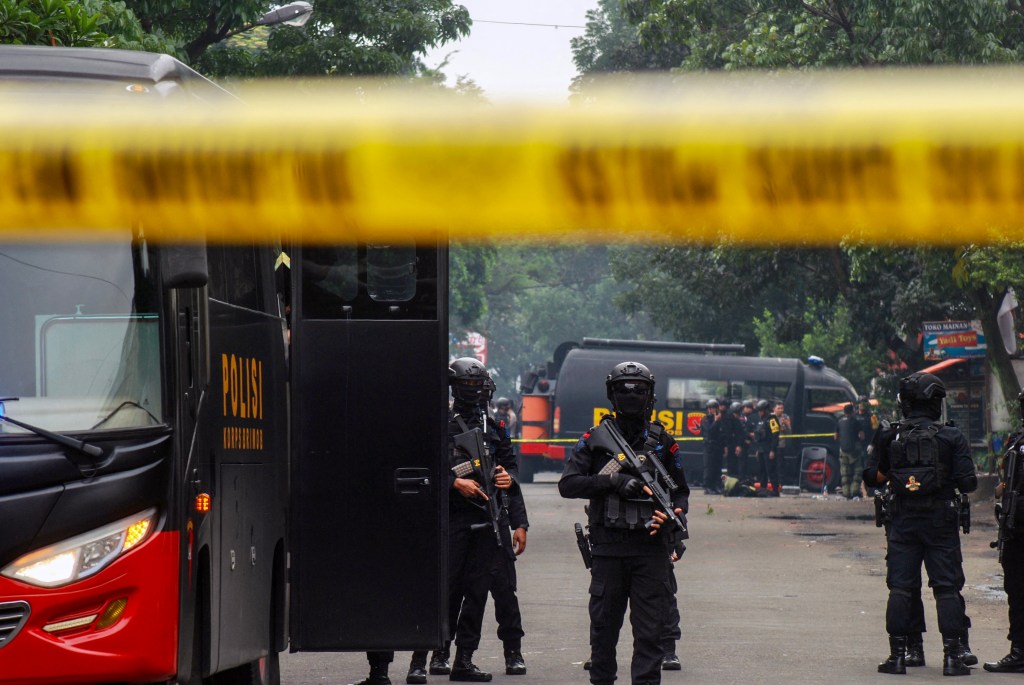SANTIAGO, Chile – Six weeks after a police officer was filmed pushing a minor from a bridge during a protest in Santiago, Chile, the country’s police chief Mario Rozas has resigned.
Rozas handed in his resignation following another controversial incident that happened on the evening of November 18: Police officers opened fire on a state-run foster home, injuring two minors who reportedly were throwing rocks at them.
Videos by VICE
“To use bullets in response to insults, sticks, and stones is intolerable, even more so when there are adolescents involved,” read a statement by Amnesty International.
Rozas’ resignation has been called for since October 2019, following what his critics say grave mismanagement of Chile’s police force during a period of intense social unrest in the country, when millions took to the streets, angered by rising costs of living and inequality. Their demands eventually converged into a call for a new constitution.
But protesters were confronted with intense repression from police forces. In 13 months, over 30 people were killed in clashes with state forces and more than 300 were blinded by police-fired projectiles. Over 4000 complaints against the police were reported to the state prosecutor during that period, including cases of sexual violence and torture.
It was during that civil unrest in October this year that video footage emerged that showed an armed officer come into contact with a 16-year-old boy, causing the protester to fall head-first over the bridge’s railings and land seven meters below into a murky, shallow river. He survived, but broke both wrists and suffered a closed head injury.
The police claimed the minor fell accidentally, but opposition party members demanded that Chile’s President Sebastian Piñera remove Rozas as police chief immediately.
Mario Rozas’ resignation was welcomed by victims of police violence, who feel that his departure is long overdue.
“I am happy because it is a step in the right direction,” says Gloria Moraga, aged 60, who was hit in the eye by a police-fired rubber bullet while helping an injured man during a protest last year. Moraga, who now wears a prosthesis in her right eye, is shocked that it took so long for Rozas’ forced departure.
“Imagine, all the human rights violations that occurred during Rozas’ mandate,” she says, incredulously. “The police never stopped attacking people, even those children in foster care.”
On announcing Rozas’ departure, President Piñera thanked the former police chief, stating his “appreciation, admiration and gratitude” for his work “in a difficult and complex time.”
Piñera’s comments were met with fierce criticism on social media and by human rights organizations.
“The president’s words show once again his unrestricted support to Carabineros [police], and an absolute lack of recognition of the severity of the incidents that [Rozas] is linked to,” continued Amnesty’s statement, which called for an end to police impunity against human rights violations.
Members of opposition parties are concerned that Rozas’ resignation will not create the necessary changes to the institution, criticizing the naming of Ricardo Yáñez, Rozas’ deputy, as his replacement. Yáñez also came under fire for his leadership during the past year.
“The police will continue to violate human rights,” congressman Jorge Brito told VICE World News.
“Yáñez was Rozas’ second-in-command, someone in his close and intimate circle. The institution needs civil intervention. Without that, abuse and police violence will continue happening.”





